12 Classic Feminist Authors to Discover or Rediscover
By Nava Atlas | On February 26, 2018 | Updated August 22, 2019 | Comments (4)
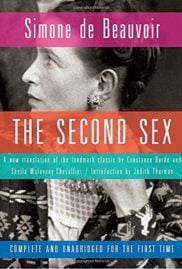
While this is by no means an exhaustive list of classic feminist authors, it’s easy to argue that these women writers (who are no longer with us) were all visionaries in their unique ways. Fortunately, many more women writing today weave their feminist views into their fiction and nonfiction works.
It’s safe to say that they stand on the shoulders of those presented here in order of birth from George Sand through Octavia Butler. Are there any others you would have included in this list? Who are today’s leading feminist authors?
. . . . . . . . . .
George Sand
George Sand (Amantine-Lucile-Aurore Dupin; 1804 – 1876), the prolific French author, started her own newspaper right around the time of the French revolution of 1848 to disseminate her progressive and socialist views. Women had no legal rights at the time, and she felt strongly that no society could advance under those circumstances.
George Sand enjoyed dressing in men’s clothing, smoking in public, traveling alone, and having lots of lovers — all things that were frowned upon for women of her time.
Though she had plenty of critics, she gave them as good as she got, and in the end, had legions of admirers. Though her books aren’t widely read in English translation, it’s worth getting to know her for the fearless way she lived, loved, and wrote.
. . . . . . . . . . .
Louisa May Alcott
Louisa May Alcott (1832 – 1888) promoted women’s rights and campaigned for women’s suffrage when she wasn’t at her writing desk. She believed in her right to write and to make money from her profession.
Her views were espoused by her lead characters, strong young women who wanted more from life than to get married and have babies. “Nothing is impossible to a determined woman,” was a line from one of her novels, but also a view she firmly held.
Though the fictional Jo March did disappoint a bit by marrying conventionally and running a school, her ambition to be a writer inspired a number of real-life women writers. Read more about how Louisa May Alcott’s feminism explains her timelessness.
. . . . . . . . . . .
Kate Chopin
Kate Chopin (1850 – 1904) was an American author who was nearly forgotten upon her death, but is now admired as one of the foremothers of 20th century feminist literature. In her fiction, she focused on women’s struggles to forge an identity of their own, especially within the rigid constraints of Southern culture.
The Awakening, her 1899 novella and best known work, came under attack when it was published and was widely banned from bookstores and libraries. It was later rediscovered and has taken a prominent place in the canon of American feminist literature.
. . . . . . . . . .
Charlotte Perkins Gilman
Charlotte Perkins Gilman (1860 – 1935) was an American author of fiction and nonfiction, praised for her feminist works that pushed for equal treatment of and respect for women.
Her semi-autobiographical novella (or long short story) The Yellow Wallpaper, tells of a woman who, in a depressive state, is banned from any creative activity. This drives her to near madness.
Gilman’s trilogy of utopian feminist novels starting with Herland, as well as her treatise on Women and Economics were ahead of their time. In 1994 she was welcomed into the National Women’s Hall of Fame and named one of the most influential women of the twentieth century.
. . . . . . . . . .
Miles Franklin
Miles Franklin (1879 – 1954) was an Australian novelist and feminist activist. My Brilliant Career (1901), her best known work, was also her first novel, telling the story of a teenage girl growing up in Australia eager to break free as her own person.
Franklin herself was a teenager when she wrote this insightful and delightfully rebellious book, which sealed her reputation. The lead character, Sybilla, observes:
“It came home to me as a great blow that it was only men who could take the world by its ears and conquer their fate, while women, metaphorically speaking, were forced to sit with tied hands and patiently suffer as the waves of fate tossed them hither and thither, battering and bruising without mercy.”
In 1906, she moved to the U.S. to work with the National Women’s Trade Union League of America, and continued to be active in social causes after returning to her native land.
. . . . . . . . . . .
Virginia Woolf
Virginia Woolf (1882 – 1941 ) believed in the right and agency of women to write and be heard. Though not many her novels may be considered feminist per se — they formed more of an interior, experimental body of work — A Room of One’s Own is a classic feminist manifesto.
She urged women to let their voices be heard as writers, and reminded us that we who write are both inheritors and originators. “A woman must have money and a room of her own if she is to write fiction” might be her most famous quote, but she also reminded us that “The extraordinary woman depends on the ordinary woman …”
. . . . . . . . . .
Octavia Butler
Octavia Butler (1947 – 2006) broke barriers as an African-American woman in the white male-dominated genre of science fiction. A self-described feminist, her novels feature strong female leads who are often the ones leading the charge to save humanity from itself. The MacArthur award winner was described by the New York Times as a writer “whose evocative, often troubling novels explore far-reaching issues of race, sex, power, and ultimately, what it meant to be human.”
Even if you’re not generally a sci-fi reader, you’d do well to read Kindred, which is more speculative than sci-fi, and the eerily prescient dystopian duo Parable of the Sower and Parable of the Talents.
. . . . . . . . . .
Pearl S. Buck
Pearl S. Buck (1892 – 1973), was a prolific American author of fiction and nonfiction. Her novels, whether set in China or the U.S., offered subtle examinations of women’s roles. As humanitarian and human rights advocate, she brought attention to issues of gender, politics, and race.
In an era when it was drilled into girls that a woman’s place was in the home, she wrote: “An intelligent, energetic, educated woman cannot be kept in four walls — even satin-lined, diamond-studded walls — without discovering sooner or later that they are still a prison cell.” Feminist themes are often woven into her novels.
A personal favorite is Pavilion of Women, in which Madame Wu compels her husband to take a concubine so that she can live a life of the mind and spirit.
. . . . . . . . . . .
Simone de Beauvoir
Simone de Beauvoir (1908 – 1986) was a French author, existential philosopher, political activist, feminist, and social theorist. Her most enduring work is The Second Sex, published in 1949. It’s still read and studied to this day as an essential manifesto on women’s oppression and liberation. Filled with ideas deemed radical at the time, the book established her an intellectual force and inspired a generation of women to question the status quo, and better yet, to change it.
This quote from The Second Sex is still sadly pertinent in the time of the #MeToo movement: “No one is more arrogant toward women, more aggressive or scornful, than the man who is anxious about his virility.”
. . . . . . . . . .
Doris Lessing
Doris Lessing (1919 – 2013) married and had children young and felt trapped in her role. It was writing that set her free.The Golden Notebook (1962) was her breakthrough novel, earned much attention among second-wave feminists.
She later became something of an icon in the feminist movement, and the book is considered a “feminist bible.” She experimented with other forms of fiction, including science fiction, and for her body of work, won a 2007 Nobel Prize.
She didn’t mince words, even when speaking of and to women; this quote from The Golden Notebook is a case in point: “Sometimes I dislike women, I dislike us all, because of our capacity for not-thinking when it suits us; we choose not to think when we are reaching our for happiness.” Lessing used her platform to speak out on political issues important to her; she was particularly outspoken against apartheid in South Africa.
. . . . . . . . . . .
Adrienne Rich
Adrienne Rich (1929 – 2012), the American poet, had a long career as a literary leader whose work articulated the ideas of the second wave feminist movement. Her poetry, according to this post by Sarah Wyman, envisions an alternative to a patriarchal system in which men control the avenues of power and the definitions of female existence.
Further, Wyman notes, “Rich refuses any division between the artistic and political aspects of her poetry as she uses both to explore social relations in a world hostile to female identity and creativity.” There’s lots more insight on Rich’s contributions to feminist literature in Wyman’s analysis of Dream of a Common Language by Adrienne Rich.
. . . . . . . . .
Audre Lorde
Audre Lorde (1934 – 1992) was a self-identified “black lesbian, mother, warrior, poet.” As society progressed with the anti-war, feminist and civil rights movements of the 1960s and 1970s, she moved into increasingly political themes with her poetry, speeches, and essays.
Lorde used her platform as a writer, teacher, and speaker to spread ideas and experiences about the intersecting oppressions faced by many people.
As Lorde battled breast cancer, she wrote a feminist analysis of her experience with the disease and a mastectomy. For a sampling of her views, see Ten Thought-Provoking Quotes from Sister Outsider.

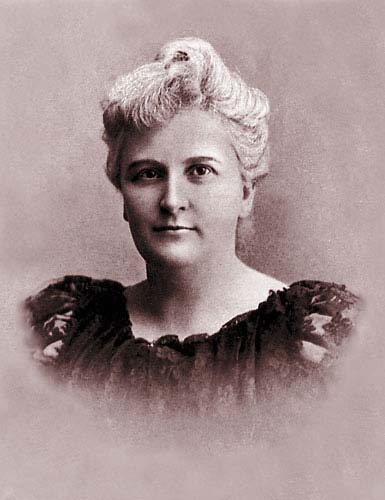



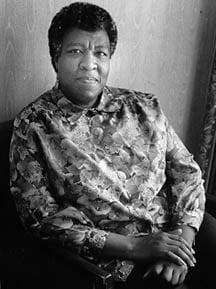
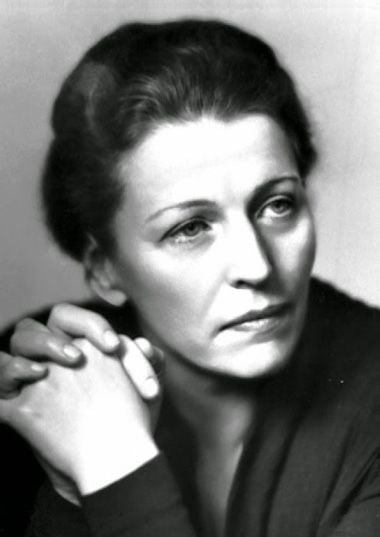
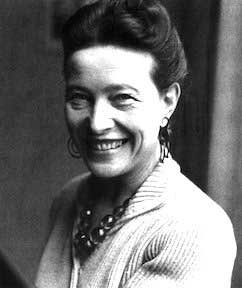

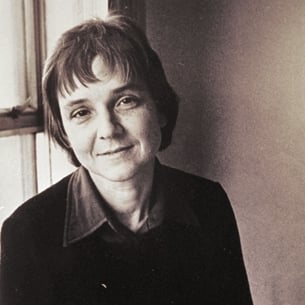
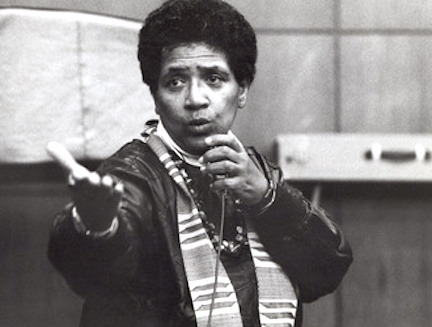
Actually I don’t think it was particularly radical of Austen to be writing at the time. There were literally hundreds of women novelists preceding her. Charlotte Lennox, Ann Radcliffe, Fanny Burney, Maria Edgeworth, Eliza Haywood, Aphra Behn, Margaret Cavendish to name just seven. ‘Mothers of the Novel’ by Dale Spender is very good on how male critics have whitewashed them out of literary history so we think Austen springs out of nowhere.
Thanks so much for your comment, Katrina. I didn’t mention Jane Austen in this piece. I’m only marginally familiar with some of the names you mention. We have Fanny Burney and Aphra Behn on the site. I wonder if their subject matter was within the realms of what it was considered proper to be writing about (I think Aphra Behn would have been the most radical by that measure); that’s why the Brontë sisters were considered so shocking in their time. I added those names to our Wish List in Write for Us that weren’t already there. (https://www.literaryladiesguide.com/literary-musings/wish-list-literary-ladies-guide-writing-life/)
Natalie, Jane Austen’s novels aren’t ostensibly feminist, but you’re right, it could easily be argued that she herself was. Even choosing not to marry, and wanting to write and publish were radical acts for a woman of her time. She was more ambitious than mythology about her would have it, and also liked making money. Thanks for your thought. If I do a part II of this subject, she’ll surely be on the list!
i was really surprised to see that jane austen wasnt in this list